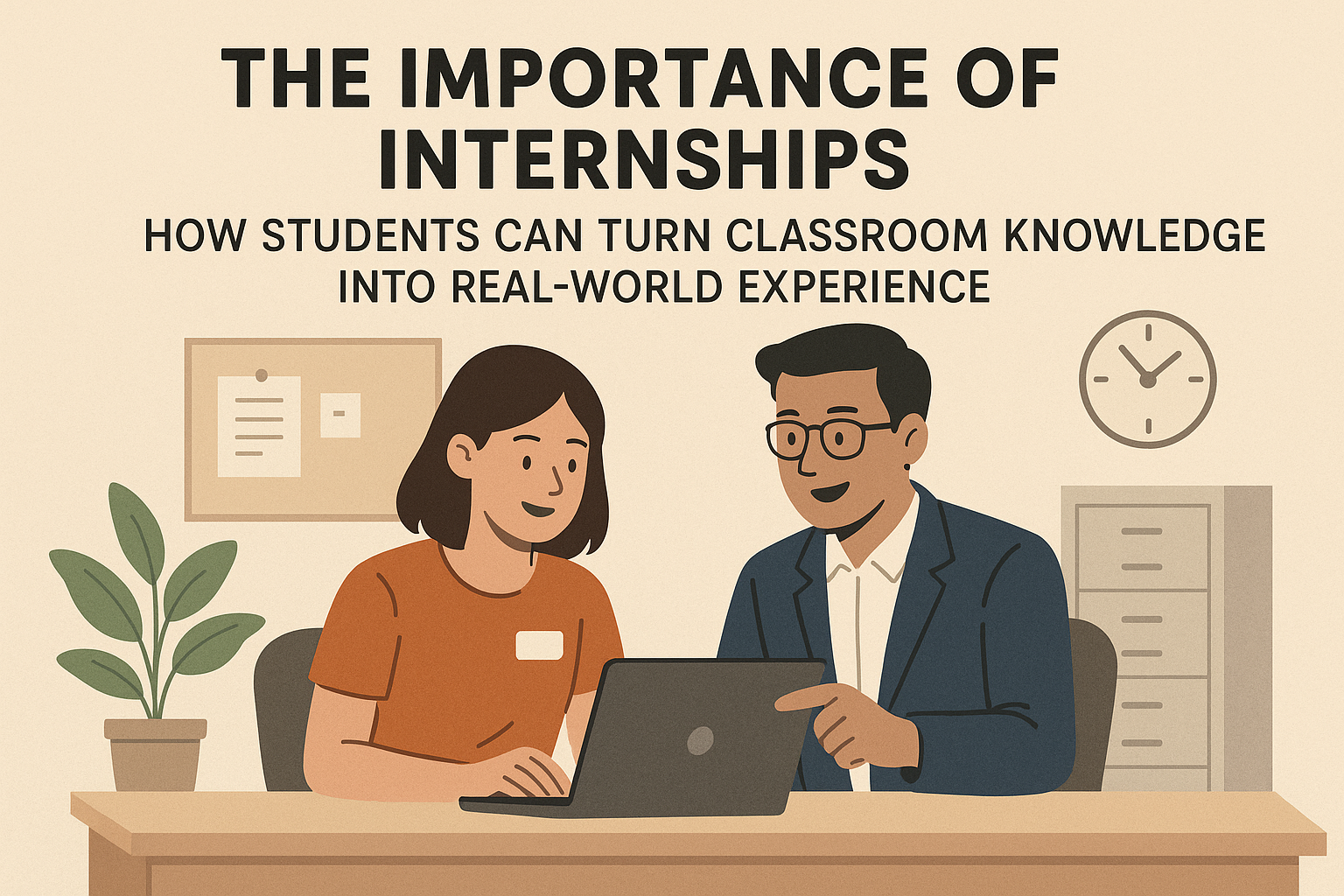


Last updated on: October 18, 2025
3 Views
Yuvika Rathi
College Student

College and school lessons teach us theories, formulas, and frameworks — but the real world speaks the language of experience. This is where internships step in. They’re not just résumé fillers; they’re the bridge that connects what you learn in class with what you’ll do in your career. Yet, many students hold themselves back, believing they’re “not ready” for internships. The truth? You don’t have to be perfect to start — you just have to start somewhere.
In today’s competitive world, employers don’t just look for degrees — they look for proof of skills.
Internships provide that proof. They:
Whether it’s a research internship for a science student or a content internship for a communication major — each experience adds a layer of professional maturity that textbooks alone can’t provide.
Many students avoid applying for internships because they feel underqualified.
Common thoughts include:
“I don’t have enough skills.”
“What if I make mistakes?”
“I’ll start once I learn more.”
But here’s the secret: no one starts ready. Every professional was once a beginner who took a chance. Waiting for the perfect moment only delays growth. Internships are meant to be learning spaces — not tests of perfection.
If you’re nervous, start small. Not every internship has to be a corporate one.
Here are beginner-friendly ways to ease in:
Each small step builds confidence, teaches workplace etiquette, and opens doors to bigger opportunities.
Think of every internship as a mini-laboratory where you test what you’ve learned in class:
This hands-on experience not only reinforces academic learning but also helps you understand why you’re studying what you are. It gives your education purpose.
Beyond skills and certificates, internships offer unseen advantages:
Internships don’t just make you job-ready — they make you life-ready. You learn how to work in teams, take feedback, adapt to challenges, and think beyond your comfort zone.
Remember, every opportunity — no matter how small — counts. The key is consistency. Apply, learn, make mistakes, and improve. Over time, these experiences compound into confidence and capability.
Finding the right internship can feel overwhelming at first, but there are plenty of student-friendly platforms and methods that help you get started — even if you have no experience yet.
These websites are goldmines for beginner-friendly and remote internships:
Most colleges have placement or internship cells that partner with companies.
You can attend workshops, networking events, or placement drives where internship opportunities are often announced first.
Startups are often more open to hiring interns with little or no experience — they value enthusiasm and learning attitude.
Similarly, NGOs, social organizations, and community projects frequently need volunteers and interns for research, content, social media, or event management.
If you prefer flexibility, you can learn through short projects on platforms like:
Don’t underestimate the power of a simple message.
Send polite, professional emails or DMs to:
You’ll never feel “fully ready,” but the best way to learn is by doing. Internships are not just stepping stones to a career — they’re transformative experiences that shape who you become professionally and personally.
So, stop waiting for the perfect internship or the perfect moment. Start small, stay curious, and turn your classroom knowledge into a foundation for real-world success.